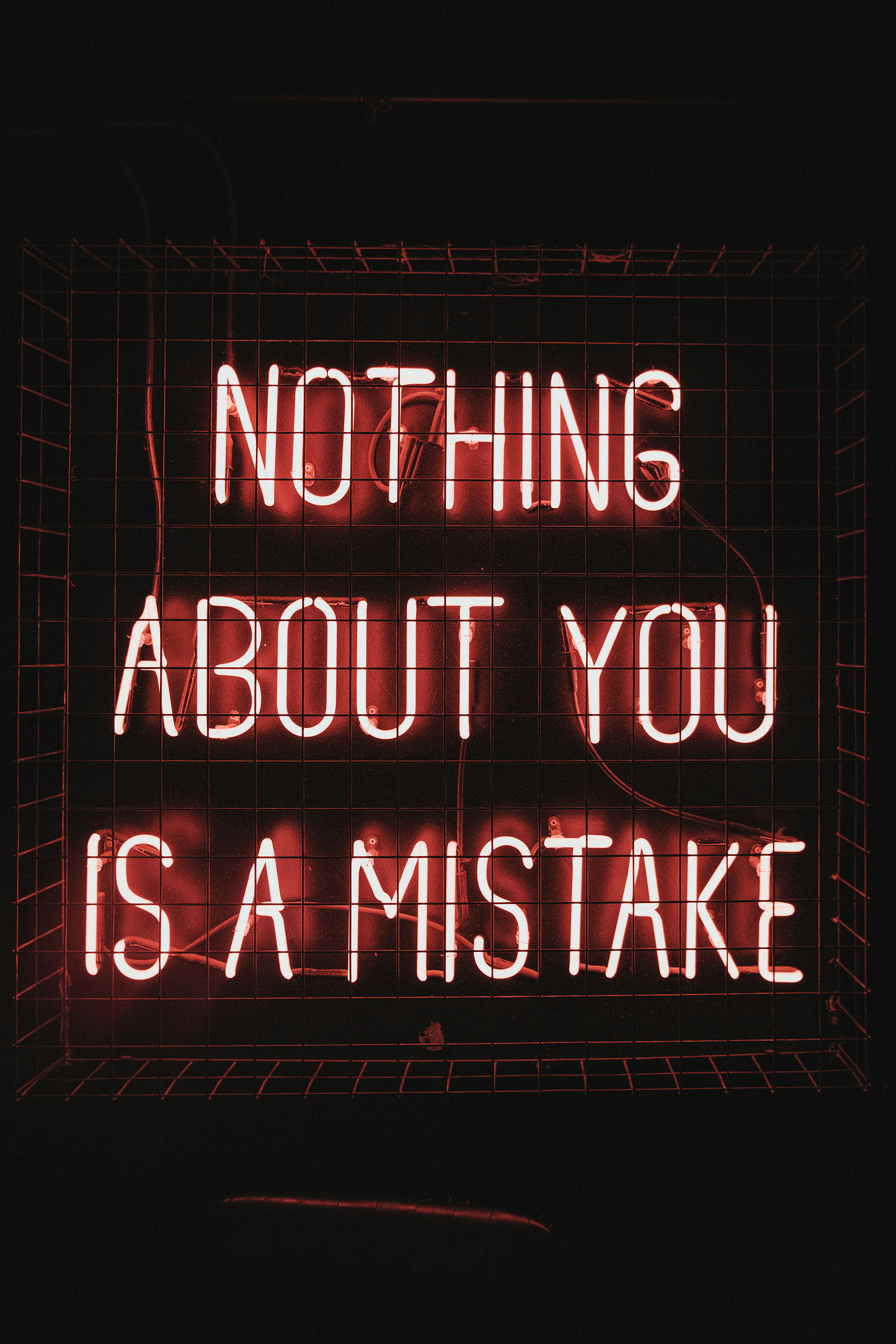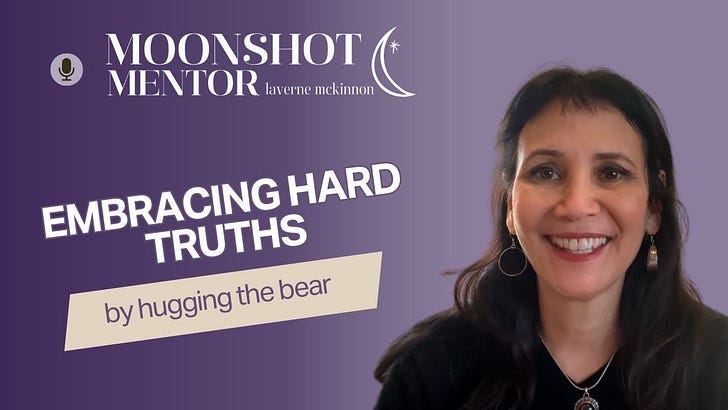When I was fired from CBS back in 2006, all I could do was replay over and over and over the mistakes I made—everything from speaking up in a meeting when I should have kept quiet to making a snarky comment on an email and accidentally hitting "reply all" to not managing the tone of my voice when I would get frustrated.
My inner dialogue was harsh and punishing and pushed me further into a depression. I know I’m not alone in this. One of my clients almost quit her beloved career as a result of a mistake.
It’s Random Act of Kindness Day, and I challenge you to forgive yourself for a mistake as an act of radical self-kindness. If your stomach drops at the thought, stay with me. You can start small: “I forgive myself for not responding to that email in a timely way.”
Forgiving yourself, one mistake at a time, is a transformative process. It lightens the emotional weight you carry and helps you move past the drudgery of self-criticism.
What You May Not Know About Mistakes
Mistakes are a fundamental part of human nature because we are inherently imperfect and constantly learning. For those of us who are perfectionists, this may come as a big bummer.
Our brains are wired to experiment, adapt, and grow, which means we are designed to experience trial and error. Mistakes are simply the byproduct of trying something new, pushing boundaries, or making decisions without complete information.
From an evolutionary perspective, mistakes help us learn and adapt to our environments. They provide feedback that guides us toward better solutions, improved behaviors, and smarter choices. If humans never made mistakes, we wouldn't grow, innovate, or develop resilience.

It’s not the mistake itself that is the problem. It’s our relationship with making mistakes. Mistakes remind us of our limits which can be wildly uncomfortable - especially in a world where blaming and shaming is the currency of getting noticed.
What Self-Forgiveness Means
In order to forgive yourself for your mistakes, you first need to know what self-forgiveness means. It’s the conscious, intentional decision to release feelings of guilt, shame, or resentment toward yourself. It’s simple, not easy.
There’s an important distinction though between self-forgiveness and letting yourself off the hook. It lies in accountability and growth.
Letting yourself off the hook often skips the step of accountability. It’s dismissing or minimizing your actions to avoid discomfort or consequences, without fully addressing the impact of your behavior. While it might feel easier in the moment, it can hinder personal growth and strain relationships by avoiding responsibility.
Self-forgiveness, on the other hand, is about acknowledging your mistake and taking responsibility for it while releasing feelings of guilt, shame, or self-blame. It requires self-reflection and often includes making amends, learning from the experience, and committing to doing better in the future.
How to Forgive Yourself
Here are four steps to forgive rather than let yourself off the hook or bury your head in the sand.
Step 1: Acknowledge the Impact: Reflect honestly on what happened and the feelings or consequences tied to the situation. Avoid denial or minimizing it.
Step 2: Separate Yourself from the Mistake: Recognize that your actions don’t define your entire character. Mistakes are events, not identities.
Step 3: Offer Yourself Compassion: Treat yourself with the same kindness and empathy you’d offer a loved one in a similar situation.
Step 4: Learn and Commit to Growth: Focus on what the experience taught you and how you’ll approach things differently moving forward.
Case Study
My client Becky, a writer who sold a tv idea to a streaming service, missed an important deadline that put the project into jeopardy. The producer, director and studio were angry, and there were multiple calls to Becky’s manager and agent. Initially, Becky blamed the streamer and the studio for the missed deadline citing that the notes that she was given on the script were not clear.
When we took time to unpack what had happened, Becky was able to recognize her mistake. She allowed her own frustration with mixed messages from the team to derail her and she didn’t communicate her confusion and loss of motivation. In part she thought she could get past it, but as the deadline got closer and closer she became more panicked and froze.
Becky’s upset with the team turned to self-recrimination and her belief that she had ruined her career. As we unpacked the situation further and looked at the data (over the drama), there was no evidence that her entire career was ruined. Becky did not have a history of missing deadlines, and in fact was known to be very reliable.
As she was able to re-ground and calm herself, we identified a few writers for Becky to speak to who had been in a similar situation. As a result, Becky recognized just how difficult it is to juggle conflicting feedback from multiple sources. The validation from others allowed her to practice self-compassion.
Becky made a commitment to communicate with her team when she was feeling confused or frustrated by feedback. She forgave herself for the mistake of missing the deadline and was able to course correct and meet the next deadline.
Bottom Line
Self-forgiveness is an act of radical kindness that allows you to move forward with clarity, resilience, and renewed purpose.
Journal Prompts
Mistakes can feel heavy, especially when we replay them in our minds, letting them shape how we see ourselves. But self-forgiveness is a powerful way to break free from that cycle and reclaim your sense of purpose. These journal prompts will help you reflect, reframe, and move forward with compassion and clarity. Take a moment, grab a pen, and be kind to yourself as you explore these questions.
If you like what you’re reading, please subscribe or share. It will help me reach my moonshot of 5000 subscribers. I write more about why I have paid subscriptions here.
Listen to this episode with a 7-day free trial
Subscribe to Moonshot Mentor with Laverne McKinnon to listen to this post and get 7 days of free access to the full post archives.













